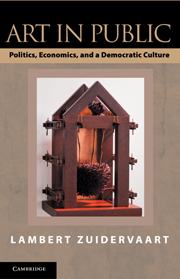9 - Democratic Culture
Published online by Cambridge University Press: 05 June 2012
Summary
This precious mess. Democracy. How much can be done in its name before, like an egg consumed by a snake, it becomes merely a shell?
Ann-Marie MacDonaldOn August 1, 1995, the New York Times carried a front-page story boldly captioned “Walt Disney Acquiring ABC in Deal Worth $19 Billion; Entertainment Giant Born.” In slightly smaller type, next to the photograph of a laughing Michael D. Eisner, chairman of Walt Disney, and an apparently self-satisfied Thomas S. Murphy, chairman of Capital Cities/ABC, the subtitle read “Wall St. Stunned.” The merger combined one of the world’s largest entertainment companies, whose sales in 1994 exceeded $10 billion, with one of the world’s largest media companies, with total sales that year of over $6 billion. At the time it was the second-largest takeover in the history of American corporate capitalism.
Meanwhile, back at the Republican ranch in Washington, D.C., Congress was stampeding toward approval of legislation to deregulate American telecommunications industries, in the name of fostering competition. On July 31, however, the New York Times, hardly a disinterested party, had run an editorial condemning the bill as “A Threat to Media Diversity,” a theme also sounded in President Clinton’s promise that evening to veto the telecommunications bill – just hours after the Walt Disney Company announced its plans to take over Capital Cities/ABC. Within days Westinghouse Electric Corporation (1994 sales of just under $9 billion) had agreed to pay $5.4 billion to acquire the broadcast network CBS Inc. (1994 sales of $3.7 billion); the House of Representatives had signed its blank check for the nation’s telecommunications industries to merge and gouge at will; and the New York Times had run several critical commentaries to complement its own detailed coverage of media merger mania.
- Type
- Chapter
- Information
- Art in PublicPolitics, Economics, and a Democratic Culture, pp. 267 - 292Publisher: Cambridge University PressPrint publication year: 2010
- 1
- Cited by



